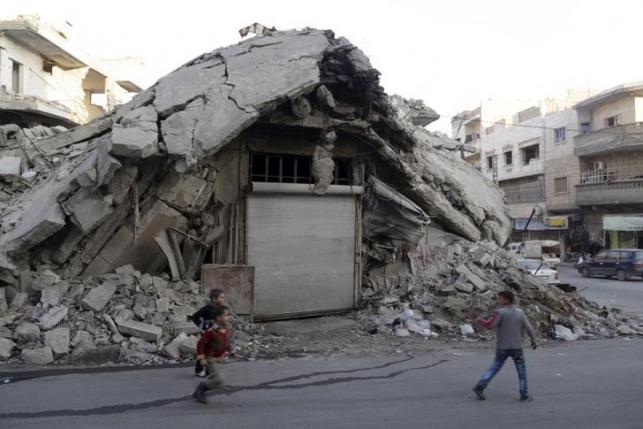Syria rebels warns UN 'pressure' will prolong war
BEIRUT\PARIS: Syrian rebels said they were under international pressure to make concessions that would prolong the war, adding to their doubts about a UN-led drive for peace talks due to begin this month.
Opposition leaders are voicing misgivings over the new effort endorsed by the Security Council, not least because it does not address President Bashar al-Assad's future, a point of contention between states on either side of the war.
Friday's statement by prominent rebel groups that support the idea of a political solution follows a meeting this week between a new opposition council and UN envoy Staffan de Mistura, who aims to start negotiations on Jan. 25 in Geneva.
Opposition leaders told de Mistura the government must take goodwill steps before any negotiations, by halting bombardments of civilian areas, lifting blockades of rebel-held territory and releasing detainees. They are waiting to hear back from him.
The rebel factions include groups represented on the council that have received backing from Assad's foreign foes, including Saudi Arabia and the United States.
"CONNIVANCE"
The rebels said they would not accept any concessions that ran counter to "the principles of our revolution" and they would support the council to resist such pressure. They also condemned what they described as international "connivance ... against the revolution".
Riad Hijab, a former prime minister under Assad, who defected in 2012 and was elected last month as coordinator of the council, travels to Paris on Monday for talks with President Francois Hollande and Foreign Minister Laurent Fabius before travelling to Berlin on Jan. 13.
"France has always had the most progressive policy towards Syria and we have the best political relations with France," said Monzer Mahkous, representative of the opposition in Paris.
France's foreign ministry said the visit aimed to coordinate positions ahead of the planned Jan. 25 talks.
"We are pursuing our efforts for a credible transition in which Assad obviously could not be there at the end and to create a lasting ceasefire," Fabius said in a New Year's speech to diplomats..
"There is a need to underline the urgency, but also the extreme difficulty in achieving these objectives."
DIPLOMATIC DRIVE
The diplomatic drive follows the Dec. 18 adoption of a U.N. Security Council resolution endorsing an international plan for a Syria peace process to end a five-year-long war that has killed 250,000 people.
The plan envisages a nationwide ceasefire and six months of talks beginning in January between Assad's government and the opposition on forming a unity government.
De Mistura arrived in Damascus on Friday. Makhous said that visit would shed light on the Syrian government's position and give a better idea of whether the negotiations could go ahead.
"Will they go ahead on Jan. 25th? It's not certain as there are a lot of problems to resolve," he said.
He added that the opposition had established its 15-member negotiating team for the talks, but would not publish it until the Syrian government announced their list.
An escalation in tensions between Saudi Arabia and Iran has compounded doubts surrounding the diplomatic initiative. Tensions have risen since Saudi Arabia executed a Shi'ite cleric, Nimr al-Nimr.
Iranian and Russian military support has been crucial to Assad, while Saudi Arabia is a main backer of the insurgents battling to topple him, including groups that signed the statement issued on Friday.






